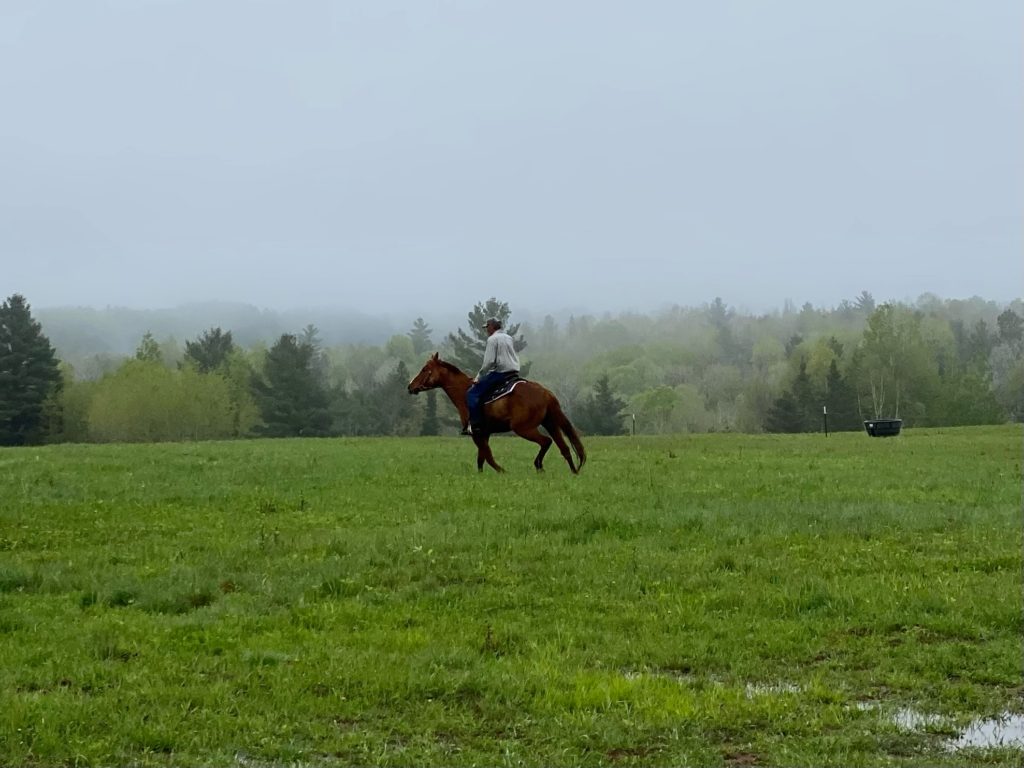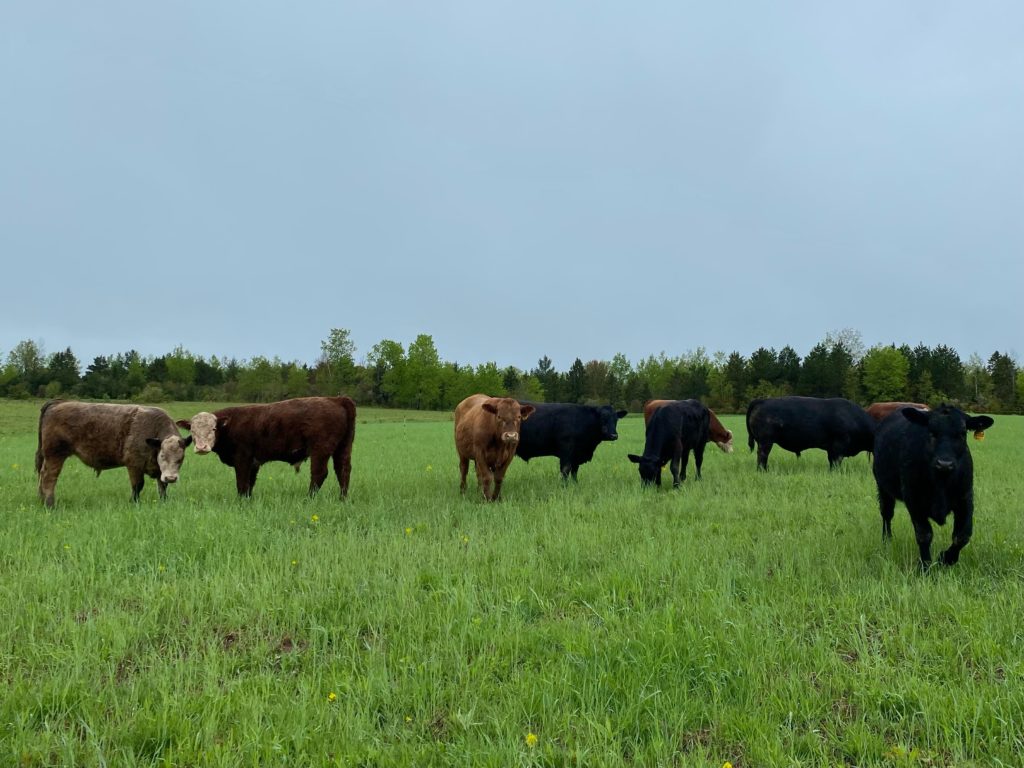
Meet Todd Holmstrom, owner of Nebula Farms in Michigan’s Upper Peninsula. Holmstrom is a fourth-generation U.P. farmer. Like many in the area, Holmstrom’s great-grandfather immigrated to the Keweenaw from Finland, working in the mines and eventually buying property to farm in Paynesville. Growing up, Holmstrom helped his grandparents sustain themselves on their farm. It was always his dream and intention to follow in their footsteps. He even went to study Animal Sciences in Colorado and worked on multiple horse and cattle ranches out West.
Today, Holmstrom works in the same fields he worked as a child with his grandfather. His goal for Nebula Farms is to provide local food consumers access to quality beef through a newly established grass-finished beef CSA.
Intentional Farming at Nebula Farms
While Holmstrom may be following in his family’s footsteps, his vision for Nebula Farms diverges from traditional beef operations in a number of important ways. Avoiding conventional industry practices such as feeding grain, implanting hormones, and spraying chemical herbicides, Nebula Farms is extremely intentional about what the cattle are consuming from start to finish. Local food consumers are becoming increasingly aware of the negative impacts associated with industrialized meat production, leading them to seek out healthier options. Holmstrom realized this demand was going largely unserviced in his area of the Upper Peninsula and saw an opportunity for Nebula Farms to contribute to the community.
“Everything that people were doing back in the 80s, what I learned as standard practice out West, they’re still doing as standard practice here today,” Holmstrom says. “The industry hasn’t changed, but the consumer has changed. ”

Nebula Farms places an emphasis on nutrition and quality with not only grass-fed, but grass-finished beef. While some may be familiar with the term grass-fed beef, this doesn’t always mean a high-quality, grass-fed diet was maintained throughout the lifetime of an animal. In contrast, grass-finished beef indicates cattle that was raised entirely on the highest quality forage from start to finish.
“Grass finishing takes a lot more effort, management, and resources than traditional grass-fed operations, where the cattle are let loose to roam the same pasture or two all summer,” Holmstrom says.
The process starts long before birth, seeking out a bull with the right genetics to produce offspring that gain well on grass instead of grain. Holmstrom went as far as Montana to find the perfect candidates. Once settled in their new home, the cows, steers, and bulls graze on pasture that is nutrient-rich with grass, clover, and trefoil. Management intensive grazing is a time-consuming method that requires the cattle to be rotated to different pastures daily. Rotating the cattle ensures the highest quality nutrition in the plants consumed because it allows time for fertilization and regrowth. In the Spring, this can take place as much as every two hours to ensure that cattle receive maximum nutrition before harvesting the beef. Holmstrom explains that this method is not only better for cattle, but also for the environment. This reduces or eliminates the need to plow, allowing carbon to sink back into the soil.
There are no cutting corners when it comes to grass-finished beef, which is why Nebula Farms beef CSA prides itself on quality over quantity. Nebula Farms has generational knowledge, passion, and integrity that consumers can count on. Holmstrom encourages anyone that wants to learn to come out to the farm and see the difference for themselves. The proof is truly in the pasture.
Nebula Farms Beef CSA shares are now open, visit their website to learn more!
Nebula Farms, 5963 Montgomery Point Rd, Mohawk, MI 49950
Madelina DiLisi is the Western UP Local Food Coordinator for Taste the Local Difference. You can reach her at [email protected].
